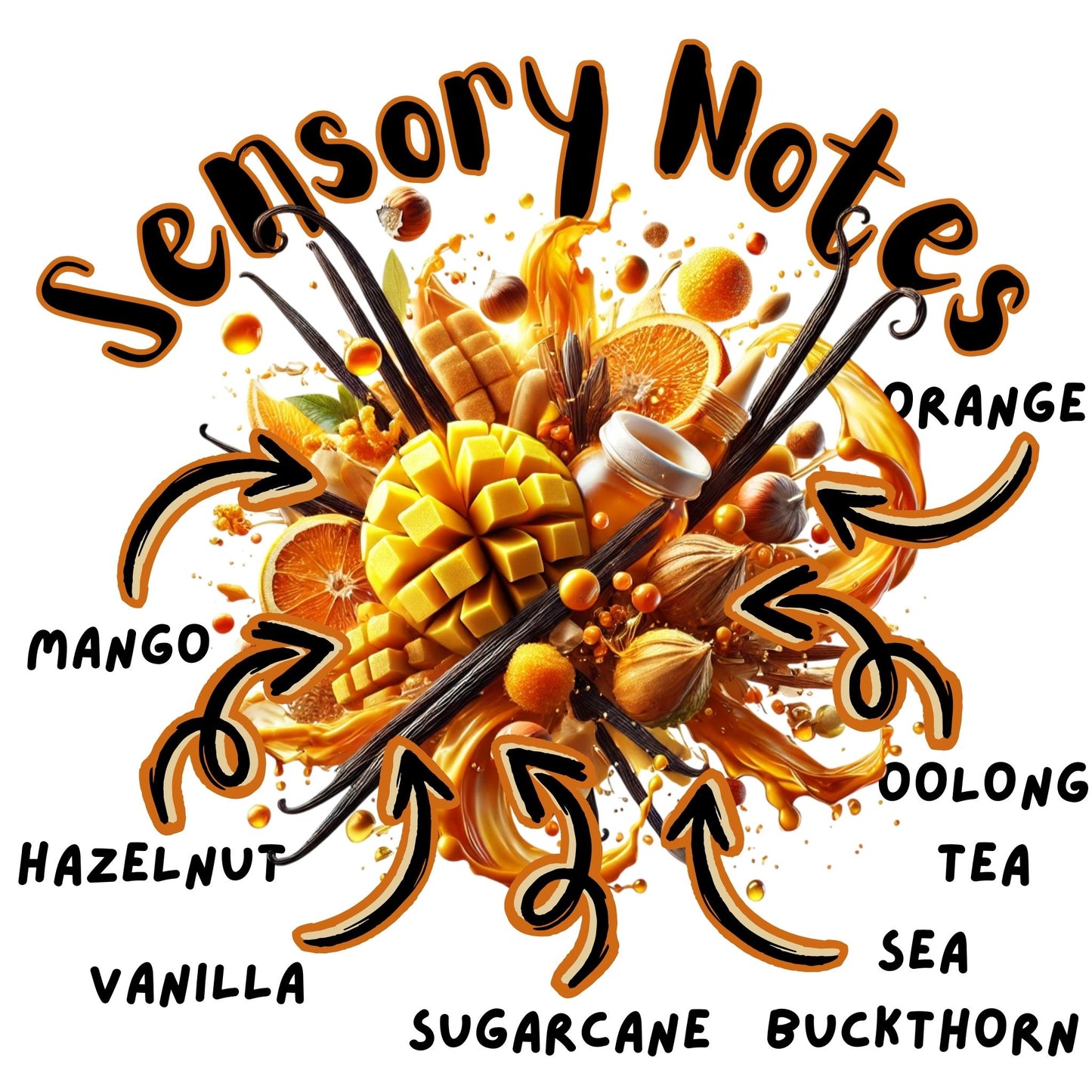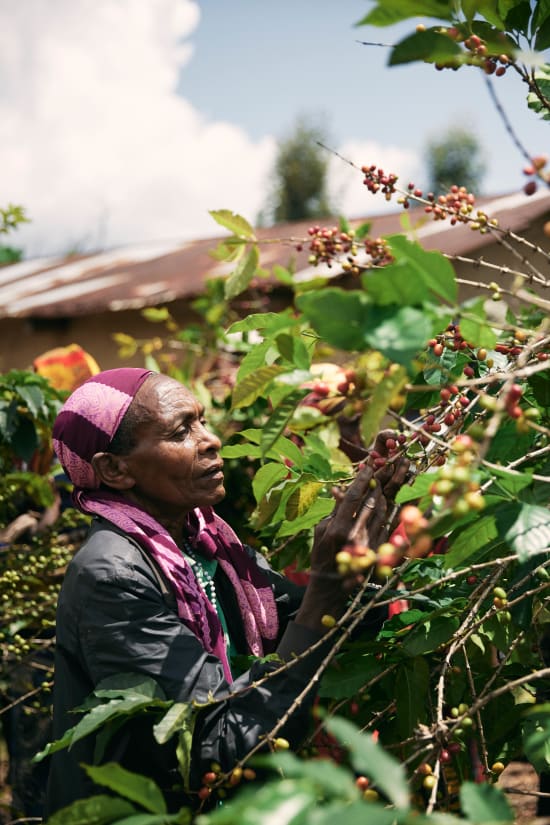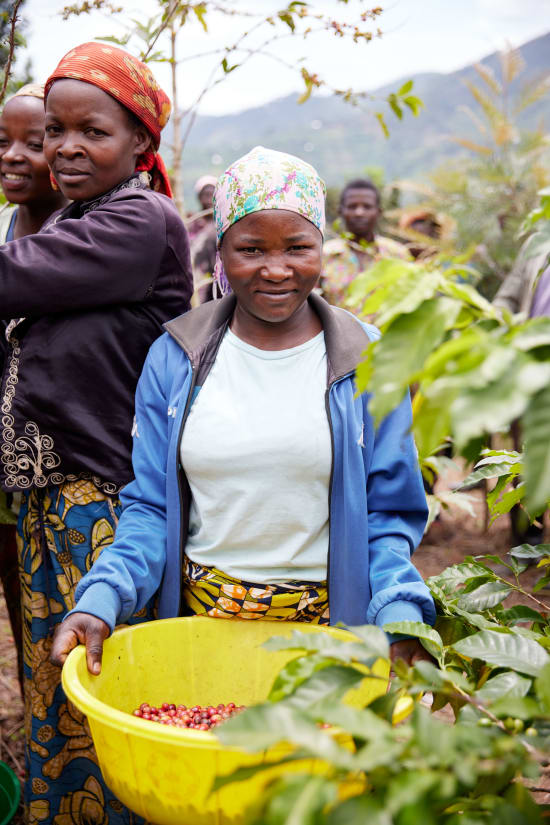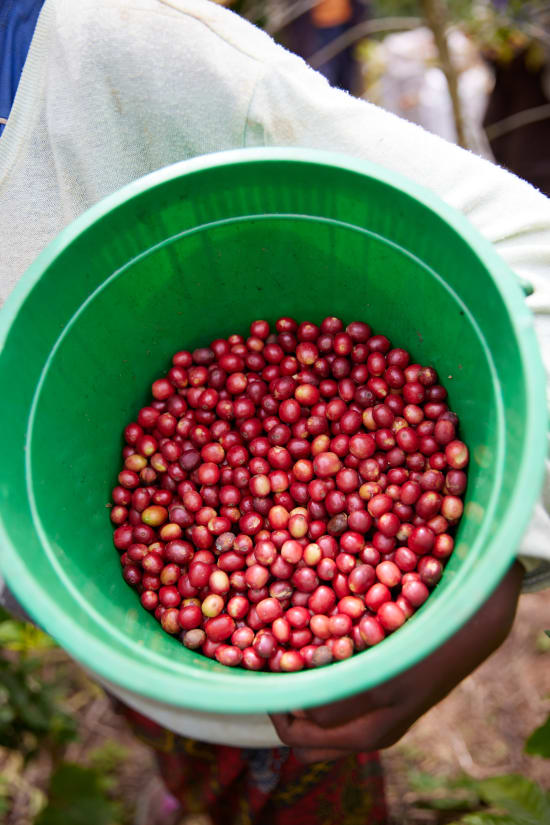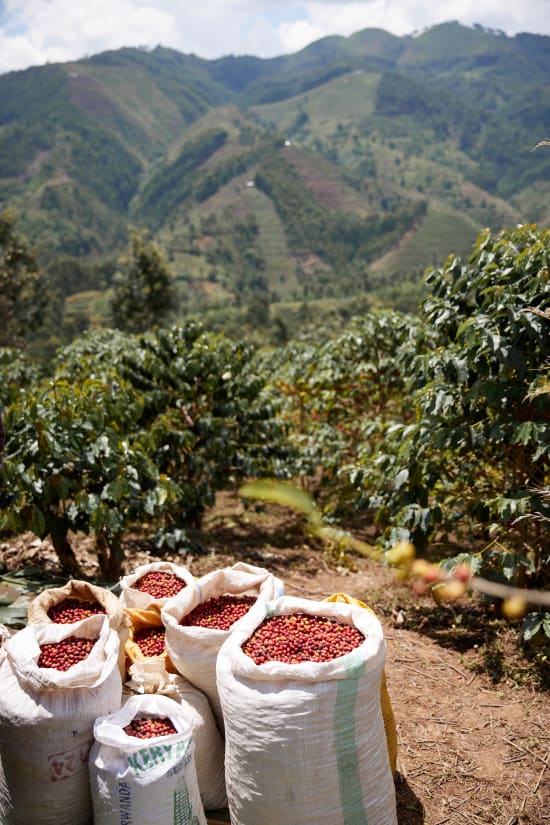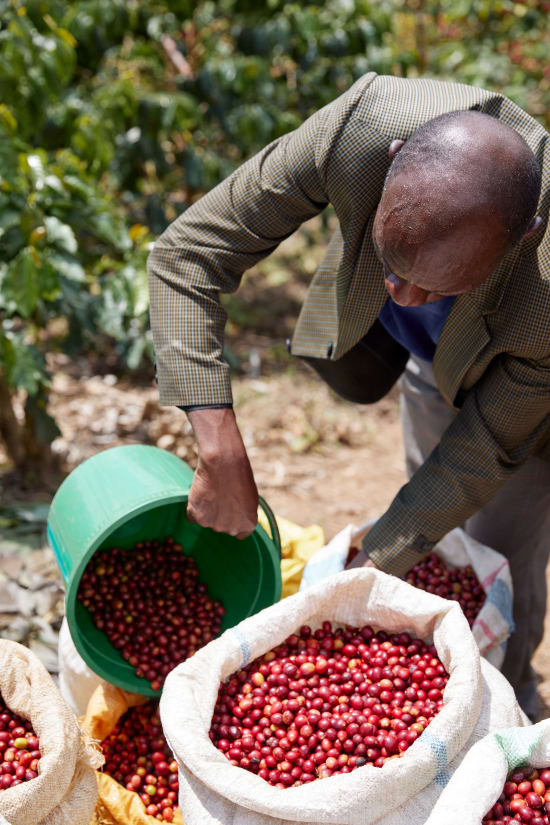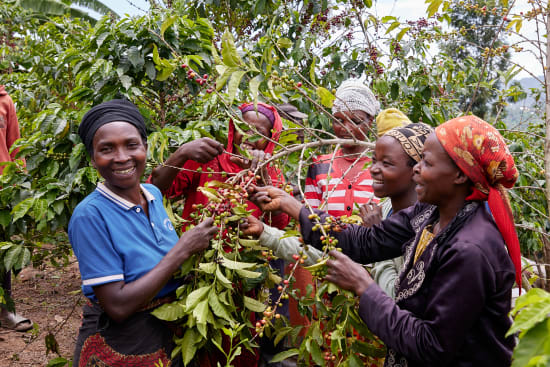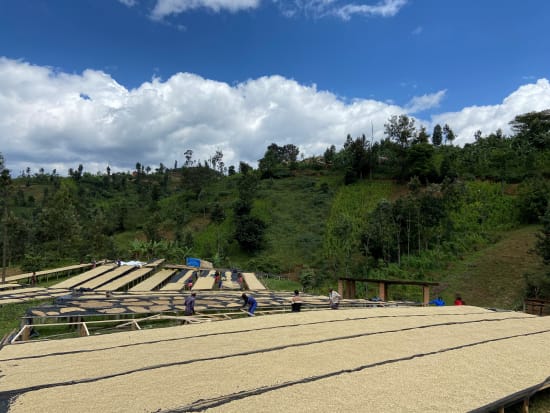Rwanda Abadatezuka
Rwanda Abadatezuka





Verfügbarkeit für Abholungen konnte nicht geladen werden
Frisch geröstet für vollen Geschmack
Frisch geröstet für vollen Geschmack
Not sure how much coffee you need?
| Cups a week | 250g bag |
| 1-4 | 1 bag a month |
| 5-8 | 2 bags a month |
| 9-12 | 3 bags a month |
| 13-16 | 4 bags a month |
1 cup of coffee = a 240 ml serving based on a 1:16 brew ratio
For example, if your brew ratio is 1 to 16 (often expressed 1:16, or 1/16), then for every one part coffee, you use 16 parts water. In other words, to prepare 1 cup of brewed coffee you would use 15g of ground coffee and 240 ml of water.
Versand & Lieferung
Versand & Lieferung
Wir versenden täglich von Montag bis Freitag von unseren Standorten in Wien. Der Mindestbestellwert für jede Lieferung beträgt 20 €.
Lieferungen innerhalb Österreichs
4,50 € für Bestellungen bis 35,00 €. Bestellungen über 35,00 € werden kostenlos geliefert.
Lieferzeit: 2 - 4 Werktage
Lieferungen nach Deutschland
9,90 € für Bestellungen bis 70,00 €. Bestellungen über 70,00 € werden kostenlos geliefert.
Lieferzeit: 2 - 7 Werktage
Lieferungen in andere EU-Länder (außer Deutschland)
14,90 € für Bestellungen bis 70,00 €. Bestellungen über 70,00 € werden kostenlos geliefert.
Lieferzeit: 3 - 10 Werktage
Ethisch bezogen, fair bezahlt
Ethisch bezogen, fair bezahlt
Wir arbeiten eng mit Kaffeebauern und zuverlässigen Partnern zusammen, um faire Löhne und transparente Beziehungen zu gewährleisten.
Hinter dem Kaffee
Hinter dem Kaffee
The Coffee
We source this coffee through Cafe Imports.
Abadatezuka Cooperative is a group of smallholder farmers in Rwanda's Western Province who deliver their coffee in cherry to the Cyato Washing Station, which is located in the Cyato sector of the Nayamasheke district in that region. The producers here grow coffee at elevations all the way up to 2,200 meters above sea level, and the washing station is located at 1,850 meters above sea level. Coffees are brought to the Cyato washing station from the surrounding areas of Kivoga, Kageyo, Rusumo, Gatare, and Nsinduka. The washing station was established in 2017.
One interesting facet to coffee here is that the native honeybees that live in and around the Nyungwe forest where the coffee is grown are said to be responsible in part to the "unique profile" this coffee has. The bee-assisted pollination, fertile ground (black humus and sandy soil), and cool lake-affected climate thanks to the area's proximity to Lake Kivu contribute to the flavors found in the cup. The farmers use no synthetic inputs, either as fertilizers or as pest control.
This lot is a washed coffee. The Washed process in Rwanda includes a unique soaking step, not unlike that often found in Kenya. The cherries are delivered to central processing units the day they are harvested, where they will be depulped and fermented in open-air tanks made of concrete or cement for 12–18 hours. After fermentation, the coffees are soaked in water for 24 hours, after which their mucilage will be removed and spread on raised beds to dry.
It is a bourbon varietal. A Typica-related variety that is the result of a natural mutation of Typica-derivative coffees cultivated in Yemen and transplanted to Île Bourbon (now called Réunion Island).
Rwanda
Like most African coffee-producing countries (with the exception of Ethiopia), Rwanda was planted in coffee by colonial interests from Europe in order to supply the booming market back on their home continent. High-yield, low-cost varieties were introduced in the 1930s and made compulsory to farmers by Belgian colonials, offering little in the way of quality incentive or development. Coffee was intended to be a cheap commodity available in abundance, and the colonial government held strict mandates over exports in addition to imposing very high taxes on growers, practically enslaving them to the industry. Roughly 75 percent of the land mass of Rwanda is used for agriculture, and more than 35 percent of its population are subsistence farmers, many of whom rely on coffee for at least a portion of their income.
While coffee became the staple agricultural export by the 1990s (despite very low market prices), its production, along with the national economy in general, was devastated by the genocide in 1994. Nearly 1 million people were killed in the national tragedy, which stalled development and slowed progress for nearly a decade. Targeted programs initiated by the government in the early 2000s encouraged Rwandans to use specialty coffee as one of the means to recover and create a new niche agricultural market. The erection of the first washing station with USAID support in 2004, and the country was the first to host a Cup of Excellence auction, bringing international recognition to the “Land of a Thousand Hills” as a potential producer of exceptional quality.
Today, this tiny country (roughly the size of Maryland) contributes less than 0.2 percent of the global coffee supply, but its reputation for special quality and unique characteristics—not to mention the incredible story of its development as a specialty-coffee origin since the genocide—have earned Rwanda a significant place at the table among African origins.
All images are (c) Cafe Imports





